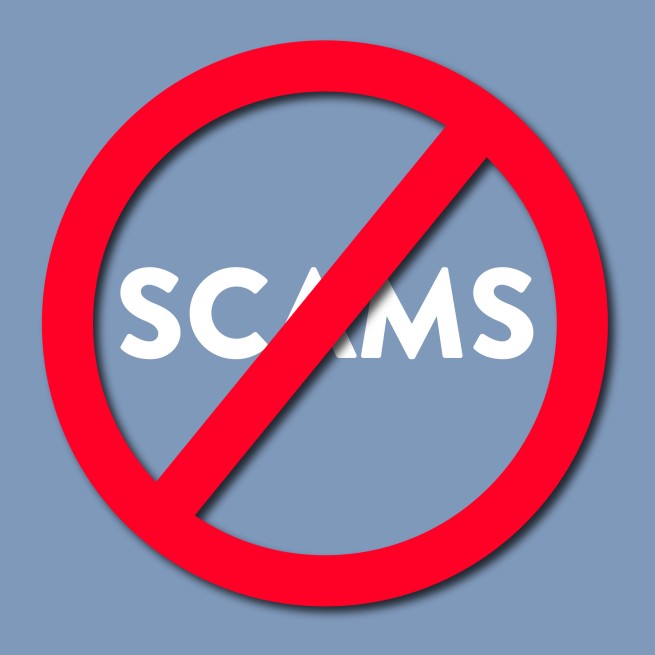Top 10 Tips to Safeguard Against Scams
Al Perales is an investigator with the Consumer Protection Division. In his seventeen years in the office, he's seen every type of scam. Here are his top tips for protecting against fraudsters.
1.) If you don't recognize the number, don't answer the call.
Let it go to voicemail. If you do answer, hang up if it's a robocall or other unsolicited offer. "You don't have to be Iowa-nice," Perales said. Don't press a button to stop receiving calls or say yes in response to a question. It shows the robocaller that you have a working number, and this will probably increase the scam calls you receive.
2.) Never give out personal or financial information.
This includes your Social Security number, bank account number, credit card number, date of birth, or any passwords. Scammers have tricky ways to get you to fill in the blanks of the information they already have about you. The more complete the information they have, the easier it is for the scammer to steal your identity, access your accounts, and scam your family and friends.
3.) Never pay with gift cards.
Gift cards are not a standard currency, and the government or a charity will not ask you to pay in gift cards. Consumers who send gift cards or prepaid card codes won't get that money back. In general, paying by a credit card offers consumers more protection than cash or debit cards.
4.) Resist pressure to act quickly or secretly.
"If it's good only for today, walk away," said Perales. Scammers use urgency to force consumers into rash choices they might avoid if they had time to think about the situation or discuss it with a trusted individual. No legitimate offer will require that you decide before you hang up the phone.
5.) Don't rely on caller ID or believe official sounding names and titles.
Scammers can spoof the name and phone number that appears on your caller ID to make it look like they're calling from your local area code, Washington D.C., a business or organization you know, or anything else that makes the scam seem legitimate. Don't be fooled by a charity's name, either. To verify a charity, check if it's registered with the Iowa Secretary of State, the IRS's Tax Exempt Organization Search, or review its ratings on groups like the Better Business Bureau, Wise Giving Alliance, Charity Navigator, Charity Watch, and Guidestar.
6.) Never pay for a prize.
Many scammers offer sweepstakes, winnings, or grant funds if you pay cash, gift cards, or provide confidential information first. "If you have to pay, it's not a prize," said Perales.
7.) Deal locally and face-to-face.
Work with people and businesses you know. It's not a guarantee, but you can reduce the chance of being scammed. Beware of ads on Craigslist or other online buying sites. If it's a car or other substantial purchase, look at the item in person before buying it. Remember that under Iowa's Door to Door sales law, you have three business days to cancel a purchase for any reason. The law is applicable on sales for more than $25 if the sale is made at a location other than the seller's business, and if the goods or services will be used for personal, familial, or household purposes.
8.) Take time each month to go through your bank and credit card statements.
Dispute suspicious charges with your bank or credit card company. To protect your identity, you can place a security freeze on your credit report for free.
9.) Double check and verify whoever is requesting your money.
Do your homework. Do an Internet search (or ask someone you trust to help you) on the business or charity. Look up the organization in the phone book to verify phone numbers or other information you've been given.
10.) Remember Al's Big Three:
"If you are ever in a situation where someone tries to raise your emotions like fear, excitement, or pulling at your heartstrings, where a sense of immediacy and urgency is palpable, and the person is asking you for money, it's a scam," said Perales.
Report scams to the Iowa Attorney General.
- Call 515-281-5926 in the Des Moines, IA area.
- Call 1-888-777-4590 if outside the Des Moines, IA area.
- Go online to www.iowaattorneygeneral.gov/for-consumers/file-a-consumer-complaint
Article taken from Iowa Attorney General.
Interested in learning more about fraud and protecting yourself? Check out our security page!


